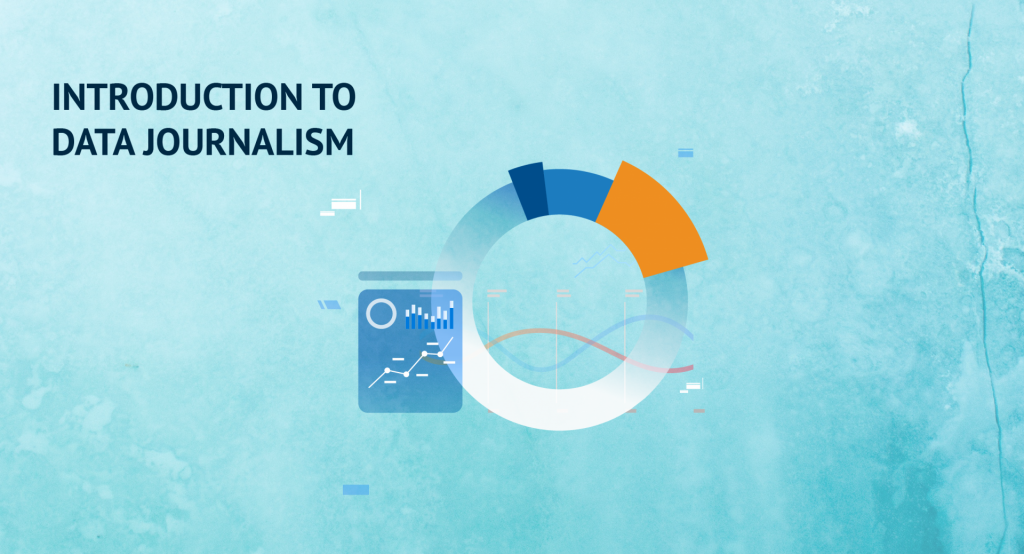What will you learn?
What is data journalism?
How is data journalism different from classical journalism?
Why did data journalism start developing only recently?
How to find an idea and data for data material?
How to find a story in data and tell it to readers?
How to visualize the data?
Program
-
Module 1
In this module, you will learn about data journalism, advantage of data materials, and why data journalism began developing only recently.
-
Module 2
The second module is covering the topic of how to create an idea for a data material and how to find data for it.
-
Module 3
In this module, you will learn how to find a story in data and tell it to readers – exactly as it is stated in the beginning of the lesson :)
-
Module 4
The fourth module covers data visualization: its main purpose and types of visualization. You will also learn the author’s main tips and analyse the main visualization errors.
-
Module 5
Screencast: example of an end-to-end analysis of data from Kazakhstan
-
Final test
Final test 10 questions 10 minutes
Instructors

Andrei Dorozhny
Data journalist, data visualization specialist. Author of the Telegram channel https://t.me/data_publication
You have successfully subscribed to the Cabar.Asia Media School mailing list
You need to activate the subscription by confirming the mail we sent you.

Frequently asked questions
How to register for the course?
First you need to register on the site itself, then select the course that suits you from the “Courses” section and register for the course itself.
Will I receive a certificate after completing the course?
The certificate is received by those who have passed all the lessons within the course and passed the final test successfully (at least 80%).
What if I don’t pass the test?
After each module in the course there is an intermediate test and a general test at the end of the course. You are given 10 attempts to pass the test. If it fails from the first attempts, you can review the lesson and take the test again. After exhausting 10 attempts, the system will be blocked. You will need to register for the course again to complete it.
What to do if the site is down?
Write to us at the indicated contacts in the “Contacts” section or in social networks.
What should I do if my name on the certificate is different from the name in the passport?
When registering, initially enter your data correctly. If you have indicated other details, write to us. We will correct and send the certificate with the correct data.
Can I take several courses?
Yes. You can take several courses at once or in sequence.
How often are courses updated?
Courses that already exist are not updated. We add new courses after they are crated.
How to participate in your other events?
We conduct various training events for journalists and journalism students from Central Asian countries. You can track new events on our website or on pages on social networks and take part. Often you need to register or pass a competitive selection.
Can only residents of Central Asia take courses?
Online courses are available to absolutely everyone regardless of place of residence. Offline events take place in one of the CA countries.
I am not from the media sector, but I want to enroll in the course. Is it possible?
Yes, everyone can take online courses.
How long is the course?
The duration of each course is determined individually, depending on the content and complexity of the course. The average duration is from 6 to 8 weeks. During this period, you must complete all the lessons and pass the tests. If you didn’t finish on time, the system will be blocked. But you can overwrite and go through again.



